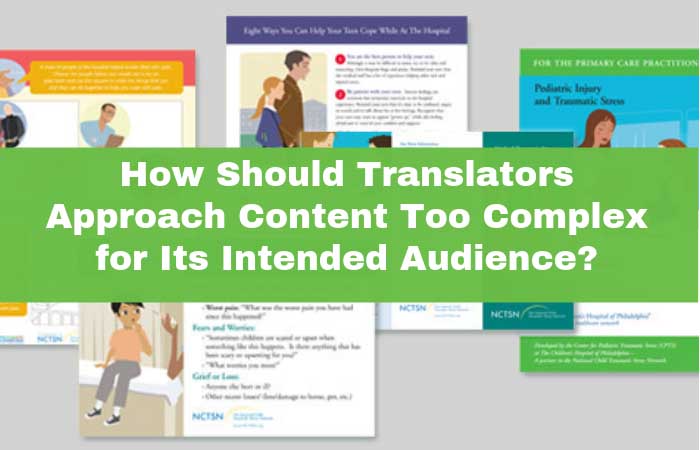Language can be hard at the best of times, but paradoxically at the times when communication is the most important, all meaning can be lost in jargon for the average reader. This is a common phenomenon in fields like the civil service, finance and health care, all of which affect every person on the planet. However, they often involve highly complex terms and concepts that will leave many of those who rely upon these services scratching their heads, having a detrimental impact on their lives.
This problem is exacerbated by language issues, possibly caused by learning difficulties, a lower level of education or not being a native speaker of a language. This matter of needing to bear your audience in mind is a familiar issue for many translators, with this being a topic that affects all languages.
A recent study for the American College of Radiology analyzed 134 Spanish-language imaging-related patient education articles from Radiologyinfo.org and found that while most adults read at an eighth or ninth-grade reading level, and organizations like the American Medical Association advise materials to be at a maximum of a sixth-grade reading level, the average article was written at a 12th– grade reading level. This is common in other medical specialties.
This complexity has very real and potentially very dangerous consequences, depending on the audience. A lack of understanding of personal health materials is associated with an increase in both hospitalization length and frequency, an increased rate of complications and higher health care costs, made all the worse in the case of the aforementioned study by US Hispanics having the lowest health literacy among all racial groups in the USA, with even the AMA’s reading recommendations likely being out of reach of many.
So, what should medical translators do in these sorts of instances? Should a Spanish translation intended for those who have lower reading levels reflect the reality? Or should it mirror the complex language in the original source document? This question is ultimately one of a matter of document intention and audience. If a document has highly complex language and involves very technical terms for an expert audience, then simplifying the language may not only lead to a loss of content, but it could also be interpreted as offensive. However, it is both a writer and translator’s job to bear the audience in mind and the solution to this issue lies in a dialogue between the two.
If a translator is working on a Spanish translation for a clinic or health care institution and knows full well that the document is for public consumption and that the language is too complex, then the translator should raise this issue with the client. Then, they can work with them to put things into as plain language as possible while maintaining the message behind the document that is so crucial to the wellbeing of the audience. While a medical translator may know the “correct” translation of a technical term in such instances, it is worth considering a simplification or the use of dialect words (such as Spanglish terms among US Hispanics) if it conveys the message in a clearer manner. The goal of this translation is to speak to its audience and to do this successfully with a hospital document for the average patient, keeping the original complex language may actually hinder the goal.
While this is indeed a topic for hospitals and the writers of public medical documents to consider, as there is still clearly an issue with clarity in their original language, translators should avoid copying source document mistakes, confusing audiences and risking hazardous outcomes. To do this, a dialogue between hospitals and translators is key – both have to know their audience and content and help each other to do so, helping them to successfully provide documents from which patients can actually benefit.
Read more!
A Guide to Translating Health Care Materials into Spanish – First Part
A Guide to Translating Health Care Materials into Spanish – Second Part









One Response
Great post! I’m definitely going to bookmark this. Thank you so much for the post; reading your blog was very informative! I enjoyed reading and learning from your content. Once again thanks for taking the time to gather them all in one place!